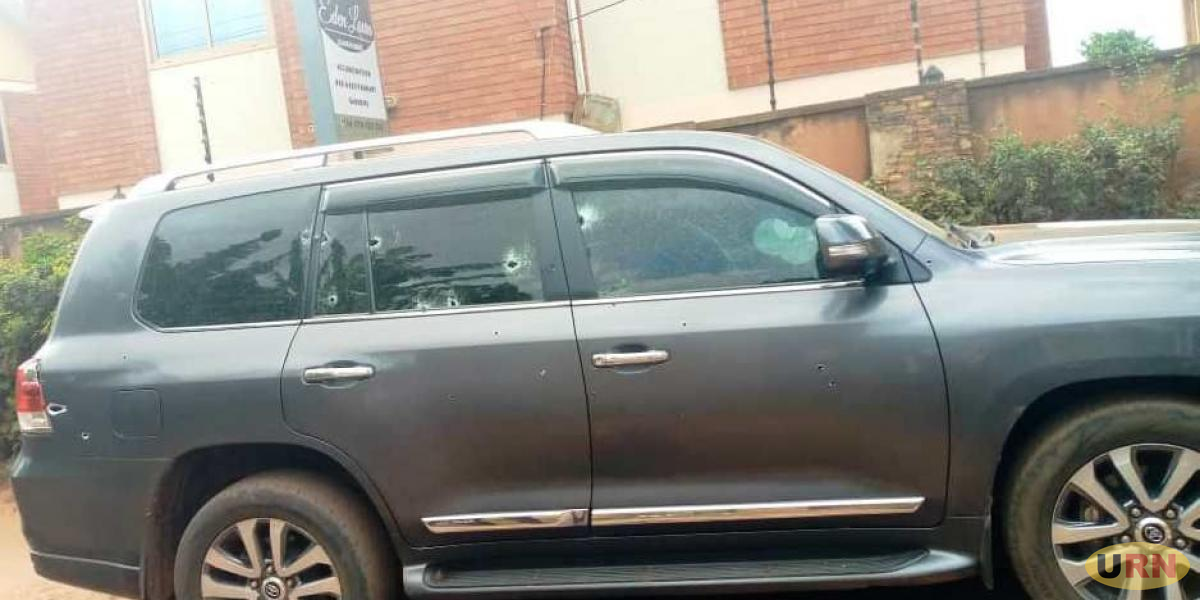Charles Migadde, a Ugandan student at Kharkov National Medical University in Ukraine’s capital Kharkov alias Kharkiv has narrated his escape from the country that is under Russian bombardment. According to Migadde, the first three days of the conflict were akin to going through hell.
Migadde has been pursuing a bachelor’s degree in medicine and was in his final year. The Russia-Ukraine conflict escalated on February 24, 2022, when Russian troops invaded Ukraine with a series of airstrikes targeting government and military installations. Migadde explains that he was sleeping in his university residence when the fighting started.
“It’s hard to describe the sound of blasts and what we saw that morning. It was very strong with serious vibrations that left many windows shuttered and the clouds were filled with smoke and you could see different bright orange lights of flames from a far distance because remember it was still dark outside (between 4 am to 5 am),” he said.
He says that the experience was extremely terrifying. “It was also hard to contact people because internet cables were disabled in all buildings that morning and the whole day,” he said. He says security officers evacuated students from their rooms and took them to a bunker near their residence and then relocated them to another bunker in the neighbourhood. “Inside the first bunker, an underground train was very cold,” Migadde said.
He explains that while in the second bunker, he made calls to friends in other cities “to confirm if the blasts were only on our side of the city and if they heard them. And they all responded that they had them. They said people in some of the other cities were also attacked by airstrike missiles all at the same time in the morning.”
While in the bunker, he informed his family about his whereabouts. His father, Dr. Gordon Katende Ssematiko, the former Executive Secretary National Drug Authority-NDA asked him to get out of Ukraine as soon as possible and flee to Poland. He told him that he would be received by a Ugandan family at the Ukraine-Poland border. So he would have to leave Kharkov for Lviv via Poltava main train station.
With 14 other foreign students, Migadde says that they struggled to book and order taxis to the main train station in Poltava because the internet was off.
They eventually got old taxi companies to transport them to Poltava train station. But most of the taxis were charging more than 100 USD for a very short distance that normally would cost less than 30 US Dollars. At the train station in Poltava, everyone had to fight to board the train even after struggling to secure tickets to Lviv.
Migadde says that he stood inside the train the entire trip from Poltava to Lviv, which took over 25 hours.
His Father, Ssematiko is happy that his son reached Lviv amidst the hardships.
His son with 12 other foreign students planned to depart for the Ukraine-Poland border shortly after arriving in Lviv. They however decided to go to Hungary after hearing that foreigners had taken three days to get clearance at the Polish border.
After reaching the Poland border, Red Cross workers gave them biscuits and water. They then boarded a bus and were dropped at a hospital for medical checks and COVID-19 tests before they finally arrived in Budapest.
Ssematiko is “eternally grateful” to the well-wishers and the family of Buyaga West MP Barnabas Tinkasimire because their son Bruno Tinka is currently hosting Migadde in his apartment.
Future Hanging in Balance
When Migadde arrived in Budapest, he was told he could stay for 60 days. However, he has been told he can only stay for 30 days. He is also in a dilemma because the universities in Hungary cannot admit him to complete his course. They can only admit him in the first year.
“He is in the second semester of the fifth year and had a few weeks to do exams. After exams he will be left with one year for an internship before graduation,” Ssematiko said. He adds, “Even if he returns to Uganda, we will still be uncertain of what will happen if his university in Ukraine remains closed. Meanwhile, the number of Ugandans in Ukraine or have since fled remains unknown.
Migadde estimates that there were 100 Ugandans in Ukraine before the attacks, most of whom were studying pharmacy, architecture, and aerospace engineering. Others are business people or residents with families in Kharkov, Poltava, Kiev, Odessa, Lviv and Dnipro. Migadde says Ugandans had agreed to meet in Poltava and Kiev to make an evacuation plan in case of conflict. But they failed to do that. He, however, says that some Ugandans fled to Romania.





